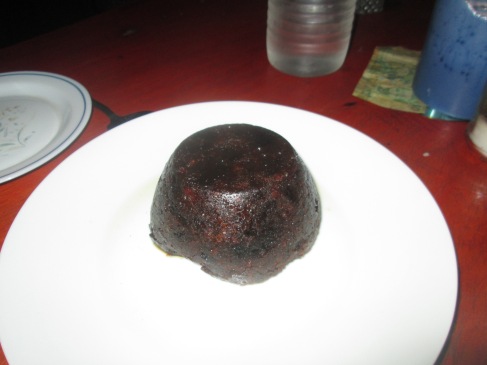Over the past few years of my career questioning I have heard “find your passion and do that” or “do what you love and you’ll love what you do” many times. Yesterday it occurred to me that that was all very well but there is a) a question of money so it’s a pretty elitist mantra and b) it conflicts with my knowledge that once you start being paid for something you used to do, it loses its charm unless you are being paid. It also implies that you should only have one love and that it’s a waste of time if you are not making money from it. My instincts are more towards the polymath, the things I love include practising writing in different styles, arguing effectively on behalf of other people, sharing food and knowing how to host people, painting and experimenting with different media, and trying to find the elements I love in activities that are new. I’d like to enjoy what I do at work, I know I need to see a social value and vocation in my work, but I don’t want to go home and have nothing else in my life that I love.
Before I came to The Gambia, a friend told me she thought I’d never come home, that I have found my vocation. That is partly true. One day I was sat in the back of a pick-up and suddenly I knew what I wanted to do next. But what I also found is that I need a new set of skills and training to add the value I want to add. And so I will go back to university in September. However, the end of my placement is due in March. This gives me six months to fill.
A few weeks ago this question of what to do next was filling every waking moment. Do I try to stay? Do I stay but with a different partner where my skills are more in line with their plans? Do I book a backpacking tour around the world? Do I get a job and save hard for the austerity of a student life?
I was asked to stay in my placement. A new manager started meaning there are much greater opportunities to make a change to the practices and performance of the institution. It was a tempting offer; my own space to live in, a hot country that I now know, a small income, nice friends, real work to do. But the life of a volunteer is a little like a stone falling through a lake. The ripples spread out into the partners and future, but for the stone you just quickly pass through and then rest on a muddy floor. All you can see is tiny changes close to you, not the wider change your work will lead to. The model works but, with a new partnership it is a frustrating experience to break the stagnant water. After a lot of soul searching, it turns out that I am tired and would like the comforts of home for at least a few weeks. I turned down the offer to stay, in the knowledge that the ripples I started will still be moving when I’ve gone.
And so I decided what is could do best is to concentrate on leaving The Gambia well. Say goodbye to those I love here, spend time appreciating the many joys of this country, and take advantage of the time I have left. I can watch the sunset over a tropical ocean, I can drink a beer in a yard under a canopy thick with stars, I can dance to African music and laugh with children. When I get home I don’t know what I will do. I do know that my slippers are under a bed at my Mum’s house. And I do know that, at least for a short while, I have a comfortable bed there. When I am home, when I am truly finished in The Gambia, then I will decide how to fill my precious six-month break. Until then, my thoughts are on the opportunities in this moment, on finding what I love here in these last few weeks.















